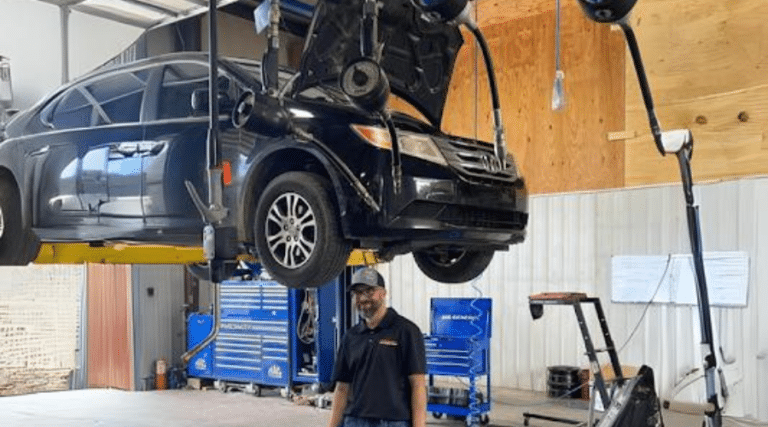All Categories
Featured

[/image]

Your automobile's engine is the heart of your automobile, and maintaining it in leading condition is necessary for optimum efficiency and longevity. Regular engine tune-ups are a terrific method to maintain your car's health and wellness, enhance fuel effectiveness, and prevent pricey repair services later on. Whether you're a car enthusiast or a person who just wishes to keep their automobile running smoothly, these engine tune-up suggestions will certainly assist you obtain one of the most out of your auto.
- Change Spark Plugs. Ignition system play a crucial duty in beginning your engine and guaranteeing smooth combustion. Gradually, ignition system can end up being unclean or broken, leading to misfires, reduced fuel performance, and rough idling.
During an engine tune-up, inspect and change your ignition system if needed. Most vehicles need new ignition system every 30,000 to 100,000 miles, depending on the type. Regularly replacing ignition system ensures appropriate ignition and optimum engine performance.
- Examine and Tidy the Air Filter. The air filter stops dust, dust, and particles from entering your engine. A clogged or unclean air filter limits air flow, triggering your engine to function tougher and shed even more gas.
Evaluate your air filter throughout a tune-up and replace it if it's filthy. In messy environments or locations with heavy pollution, you may need to transform the air filter a lot more frequently. A clean air filter can enhance fuel effectiveness and extend the life of your engine.
- Evaluate and Change Belts and Tubes. Belts and hose pipes are essential for different engine features, such as powering the alternator, water pump, and a/c system. Gradually, these components can fracture, battle royal, or put on out, possibly bring about breakdowns.
Throughout a tune-up, check belts and pipes for indications of wear and replace them if needed. Replacing these parts proactively can save you from expensive repairs and stop unanticipated failings.
- Tidy the Gas System. Your gas system, consisting of the fuel injectors and gas lines, can accumulate dust and carbon down payments over time, reducing engine performance. Cleansing the fuel system during a tune-up aids boost efficiency and gas economic situation.
You can use a gas system cleaner or have a specialist mechanic do a much more complete cleansing. This action is particularly important for older vehicles or automobiles that regularly drive in stop-and-go website traffic.
- Inspect the Battery and Charging System. A healthy battery is important for starting your engine and powering electric components. During a tune-up, evaluate the battery terminals for deterioration and ensure the links are tight.
Examine the battery's voltage and change it if it shows indications of weak point. Additionally, have the generator and billing system examined to ensure your battery remains billed during operation.
- Change the Engine Oil and Oil Filter. Oil modifications are a basic component of engine maintenance. Engine oil lubricates relocating parts, minimizes rubbing, and assists regulate engine temperature. Over time, oil comes to be contaminated and sheds its efficiency.
During a tune-up, change the engine oil and oil filter to maintain your engine running efficiently. Follow your lorry's manufacturer suggestions for oil kind and change intervals.
- Examine the Air Conditioning System. The cooling system stops your engine from overheating. In time, coolant can weaken or come to be polluted, decreasing its performance.
Examine the coolant degree and condition throughout a tune-up, and flush and replace it if required. Examine the radiator, water pump, and pipes for leaks or damages. A well-maintained cooling system assists your engine operate at the ideal temperature and protects against overheating.
- Evaluate the Ignition System. A damaged ignition system can cause starting problems and decreased engine performance. Throughout a tune-up, examine the ignition coils, distributor cap, and blades (if relevant) Change any kind of components that reveal signs of wear or damage to make certain smooth and trustworthy engine procedure.
- Pay Attention for Uncommon Sounds. During a tune-up, take the chance to pay attention for any type of uncommon engine sounds, such as knocking, ticking, or hissing. These noises can show underlying issues, such as valve issues, loose components, or exhaust leakages. Attending to these troubles early can protect against a lot more substantial damage.
- Use Top Quality Parts and Fluids. When performing an engine tune-up, always use high-grade parts and liquids that satisfy your vehicle manufacturer's specs. Inexpensive or incorrect components can compromise your engine's efficiency and integrity.
Final Thought: A Well-Tuned Engine is Secret to Long life. Routine engine tune-ups are necessary for maintaining your auto's efficiency, performance, and reliability. By replacing worn components, cleaning up crucial systems, and resolving potential problems, you can keep your engine running efficiently for many years ahead. Whether you're doing it on your own or relying upon a trusted auto mechanic, investing in tune-ups is a wise way to secure your car and delight in a more secure, smoother ride.
Latest Posts
Explore Save Big on Car Maintenance with Montclare Auto Repair’s Exclusive Deals
Check Out the Premier Auto Repair Discounts in Montclare, Chicago
Find Affordable Auto Repairs with Montclare’s Exclusive Service Specials
More
Latest Posts
Explore Save Big on Car Maintenance with Montclare Auto Repair’s Exclusive Deals
Check Out the Premier Auto Repair Discounts in Montclare, Chicago
Find Affordable Auto Repairs with Montclare’s Exclusive Service Specials